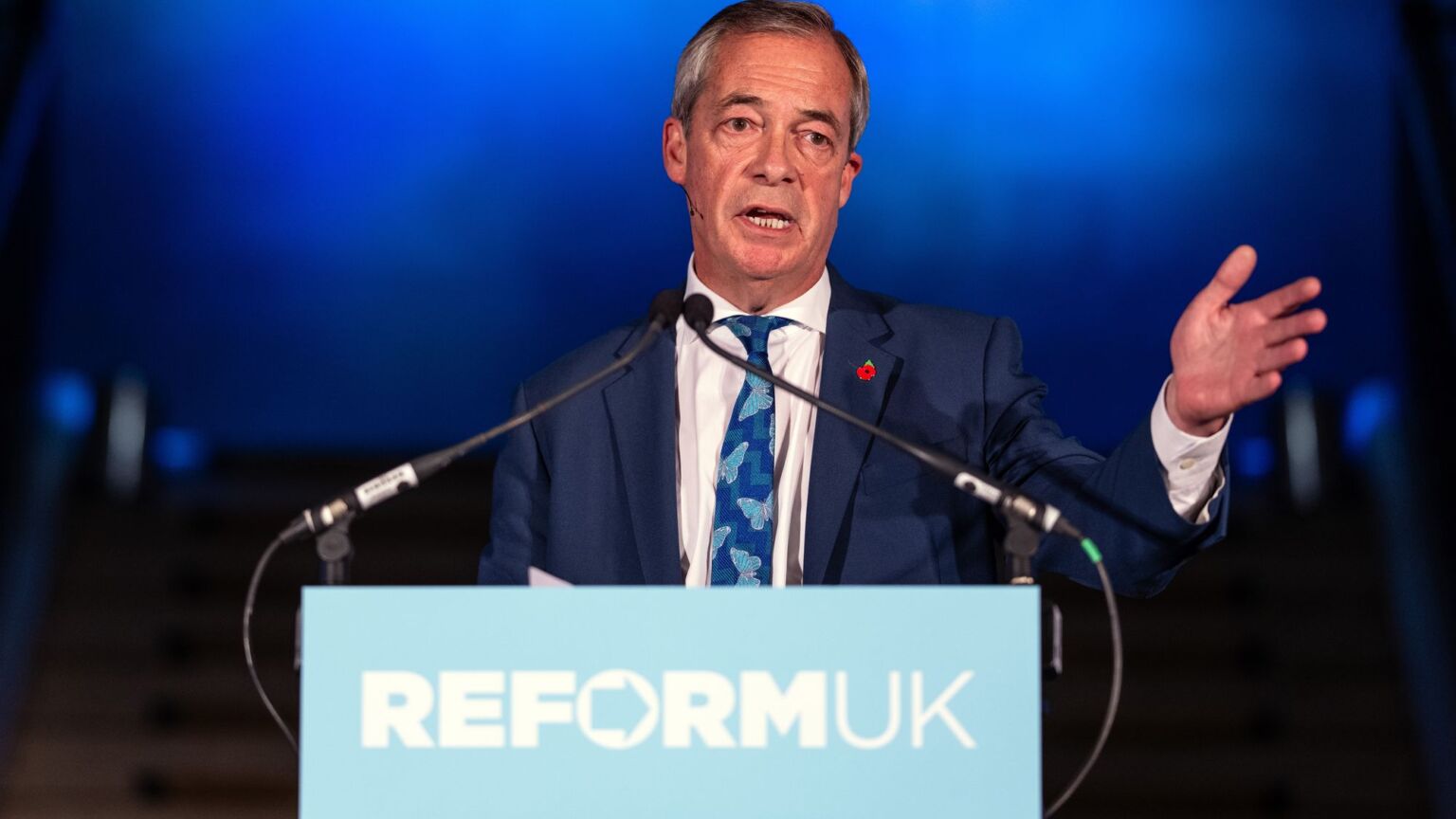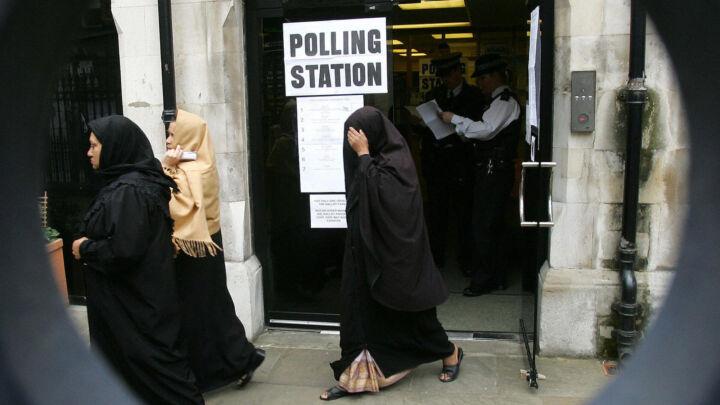Why are schools telling children that Reform is far right?
The education system has embraced political indoctrination.

Want unlimited, ad-free access? Become a spiked supporter.
What is going on in Britain’s classrooms? The line between education and indoctrination seems to grow muddier by the day. In the past few months alone, we’ve had news of primary-school pupils in Liverpool being taken to demonstrate outside the Labour Party Conference, a school in Rugby sending a girl home for wearing a Union Jack dress on Culture Celebration Day, and pupils in Wales making videos to promote the services of the Welsh Refugee Council.
This week, it has been revealed that teachers at Orien Education, a chain of schools in England, have been informing Year 10 pupils (typically 14- to 15-year-olds) that Reform UK is a far-right party with some supporters who ‘have extremist views’. PowerPoint slides, leaked by a concerned parent, position political groups on a graph, with arrows pointing left and right. On the far left sit communists, while fascists appear at the opposite end of the scale. Reform UK is positioned squarely on the fascisty end of the chart – if not explicitly fascist, then, at very least, fascist-adjacent.
In the same series of lessons, pupils are taught that ‘critics’ argue that the St George’s flag is a ‘provocative and exclusionary symbol used by far-right groups to intimidate immigrants and minorities’. They are warned that ‘[n]ewspapers such as the Daily Mail and the Sun often publish dramatic headlines about immigration, especially about “small-boat crossings” in the English Channel’. These stories sometimes use words like “flood” or “invasion”, making migrants sound like a threat.’ The ‘learning intention’ is hammered home: ‘This type of reporting can make people feel afraid or angry, which far-right groups then use to support their arguments.’ Finally, pupils in search of more information are instructed to ‘use trusted sites like BBC, the Guardian [and] Parliament.uk, instead of sites like the Sun, random blogs or YouTube channels’.
In this context, pupils are led to believe that Reform UK acts like a gateway drug. People start off watching TikTok videos of Nigel Farage and soon they are questioning all manner of nice, liberal values. Back lower levels of migration, express national pride, or challenge orthodoxies around diversity and inclusion, and, next thing you know, you’ll be doodling swastikas. The take-home message for children is clear: flirt with Reform and you’ll end up donning jackboots and a blackshirt.
Even a cursory reality check exposes just how stupid this is. Reform is engaging voters in established democratic processes, not looking to subvert them, and, for the most part, the party’s policies reflect what was mainstream political thought only a generation or so ago. Indeed, it is precisely because Reform is not fascist-adjacent that the party now regularly tops opinion polls, unlike the successor parties to the British National Party, which barely register on the public consciousness. And because Reform now has such widespread support, many children will know that their teacher’s comments are criticisms of their parents.
Schools engaging in anti-Reform propaganda are going beyond simply teaching facts. The whole left-right chart smacks of political illiteracy. Many self-declared socialists now make supporting trans rights central to their identity, but I’m yet to be persuaded that there is anything left-wing about trashing women’s rights. Likewise, in recent years we have witnessed the rise of pro-Palestine activists for whom hatred of Israel merges seamlessly with loathing of Jews. Why are these groups not placed at the fascist end of the political spectrum? Targeting Reform exposes the bias of those devising these lesson plans.
How could this happen when schools have a legal duty to remain politically impartial? Tellingly, the teachers who delivered the political-spectrum presentation do not seem to have been unduly concerned about breaching impartiality rules. Perhaps they knew that they would have the backing of the head of Britain’s largest teaching union, who, in April this year, branded Reform UK a ‘far-right and racist party’. More likely, teachers are simply blind to their own biases. People who mix with like-minded others, and – irony alert – get their news exclusively from the Guardian and the BBC, repeatedly hear their own views echoed back to them. When this is the case, anti-Reform rhetoric is accepted as fact.
To be fair to teachers, they are in a bind. They are forbidden, by law, from promoting partisan political views. But, at the same time, they are under increasing pressure from government ministers to use the classroom to tackle misinformation, fake news and extremism. Yet these are not objective, politically neutral categories. While teachers, with their own assumptions and biases, are expected to counter right-wing ‘extremism’ but remain politically impartial, we can expect to see more examples of propaganda masquerading as subject knowledge. The only good thing is that the more teachers try to tell teenagers what to think, the more they seem to rebel.
Joanna Williams is a spiked columnist and author of How Woke Won. Follow her on Substack: cieo.substack.com.
£1 a month for 3 months
You’ve hit your monthly free article limit.
Support spiked and get unlimited access.
Support spiked – £1 a month for 3 months
spiked is funded by readers like you. Only 0.1% of regular readers currently support us. If just 1% did, we could grow our team and step up the fight for free speech and democracy.
Become a spiked supporter and enjoy unlimited, ad-free access, bonus content and exclusive events – while helping to keep independent journalism alive.
———————————————————————————————————————————–
Exclusive January offer: join today for £1 a month for 3 months. Then £5 a month, cancel anytime.
———————————————————————————————————————————–
Monthly support makes the biggest difference. Thank you.










Comments
Want to join the conversation?
Only spiked supporters and patrons, who donate regularly to us, can comment on our articles.